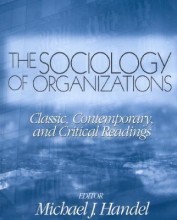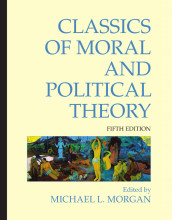Summary: Tweeupp
- This + 400k other summaries
- A unique study and practice tool
- Never study anything twice again
- Get the grades you hope for
- 100% sure, 100% understanding
Read the summary and the most important questions on Tweeupp
-
Hoofdstuk 7 - Political science, the 'new institutionalism', and the European Union
This is a preview. There are 7 more flashcards available for chapter 11/11/2015
Show more cards here -
Is the EU heavily institutionalized, by the standards of regional integration schemes worldwide?
Yes, it possesses a distinctive set of supranational institutions, as well as a number of intergovernmental bodies. -
What do institutions structure?
They structure political actions and outcomes rather than simply mirror social activity and rational competition among disaggregated units. -
Aspinwall and Schneider (2001) think about institutional political science as a spectrum. What is at either side of the spectrum?
At one end of this spectrum sits an economic rationalist position that sees institutions as the consequence of long-run patterns of behaviour by self-seeking agents. Institutions in this account are both modifiers of the pursuit of self-interest and a medium through which actors may conduct their transactions with greater efficiency. At the opposite end of the spectrum is a sociological position where actors' interests are actually constructed through processes of institutional interaction. -
Which three subspecies of institutionalism does Hall and Taylor's (1996) landmark discussion identify?
Rational choice; historical; and sociological. Each of these has a presence in EU studies. -
Rational choice institutionalism is a close relative - in terms of foundational theoretical premises - of Moravcsik's liberal intergovernmentalism. On what idea is rational choice theory based?
On the idea that human beings are self-seeking and behave rationally and strategically. The goals of political actors are organized hierarchically. They form their preferences on the basis of their interests. Institutions are important because they act as intervening variables. This means that institutions do not alter preference functions, but will have an impact upon the ways in which actors pursue those preferences. -
Thus EU studies have developed lively debat about matter such as what?
Such as the agenda-setting power of the various institutions. -
What has been another key component of the rationalist argument?
The application of 'principal-agent analyis' to EU politics. Here, self-regarding actors ('principals') find that their preferences are best served by the delegation of certain authorative tasks to common institutions ('agents'). -
For their opponents, rational choice institutionalists miss the point:
Their focus on formal rules leads them to ignore the various informal processes that grow up aroud the codified practices, but it is these informalities that better explain policy outcomes. Moreover, rational choice accounts of actor preferrences tend to leave these fixed rather than recognize the ways in which processes of socialization can mould interests and identities. -
In what are historical institutionalists interested?
In how institutional choices have longterm effects. Institutions are designed for particular purposes, at particular times, in particular sets of circumstances. They are assigned tasks, and in this proces acquire interests and ongoing agendas. -
If institutions interact with one another in a decision-making process, then what?
Then patterns that are constitutionally prescribed or evolve in the early lifetime of the institutions concerned may 'lock-in' and also become ongoing. This lock-in means that a 'path-dependent' logic may set in.
- Higher grades + faster learning
- Never study anything twice
- 100% sure, 100% understanding
Topics related to Summary: Tweeupp
-
Political science, the 'new institutionalism', and the European Union
-
Social constructivist approaches to the European Union
-
The EU and the 'new' regionalism
-
The EU and international political economy
-
Critical theories and the European Union
-
The Council of the European Union: the heart of EU decision-making
-
The ministers' Council(s)
-
Coreper
-
Working groups
-
Voting and consensus patterns
-
The role of the rotating presidency
-
Current challenges: 'absorption capacity' and 'enhanced cooperation
-
Scrutiny, appointment, and dismissal
-
Legislative powers
-
The internal politics of the European Parliament
-
Elections, the people, and the European Parliament
-
The functions of the Commission
-
Commission influence
-
The President and the Commissioners
-
The Commission administration
-
Committees, networks, and agencies
-
The history of the European courts
-
Composition, structure, and procedure
-
Direct actions
-
References for preliminary rulings
-
The evolving Community method
-
The ordinary legislative procedure
-
The open method of coordination
-
Exploring the open method of coordination in education and training
-
Market integration in historical perspective
-
The free trade umpire: the European Court of Justice and judicial activism
-
The 1992 Programme: a blueprint for action
-
The early days of the policy
-
Increasing external pressures and the MacSharry reform of 1992
-
An ongoing reform process
































